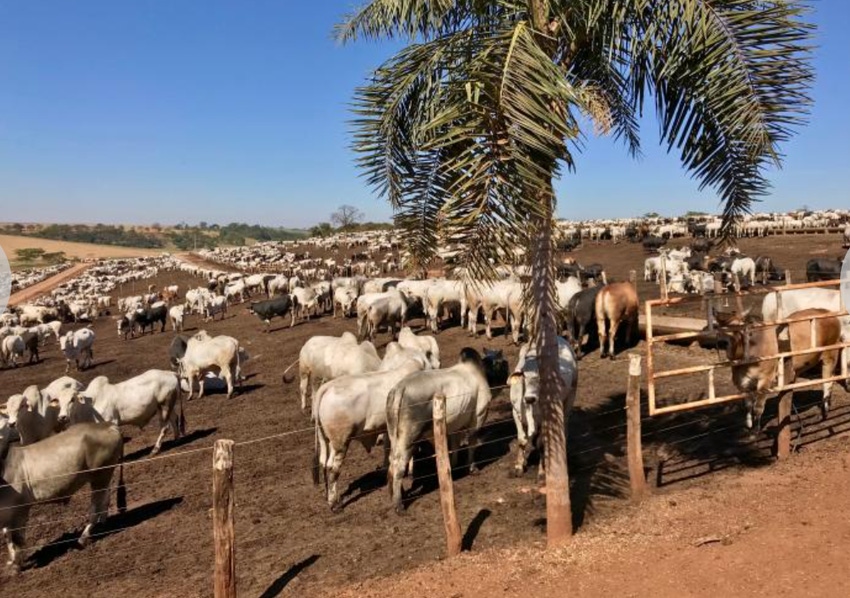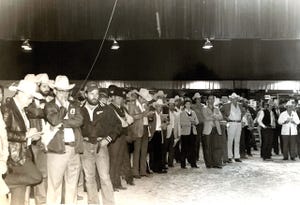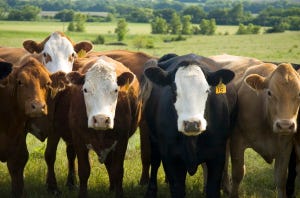DSM receives first market authorizations for methane-reducing feed additive
Full regulatory approval from Brazilian and Chilean authorities to commercialize Bovaer is milestone for company.
September 10, 2021

Royal DSM, a global science-based company active in nutrition, health and sustainable living, has received full regulatory approval from the Brazilian and Chilean authorities to commercialize Bovaer, its novel methane-reducing feed additive for ruminants. These first market authorizations, covering beef, dairy, sheep and goats, mark a significant milestone for DSM.
Intense collaboration among scientists and external partners across the globe has made Bovaer a reality. That endeavor, known as Project Clean Cow, encompassed over 10 years, 45 on-farm trials in 13 countries across four continents, and more than 48 peer-reviewed studies published in independent scientific journals. Following the first regulatory approvals, DSM can now start introducing its breakthrough innovation to the market.
“We are excited that we got these authorizations in Brazil and Chile, which makes Latin America the first continent to get approvals for Bovaer,” said Mauricio Adade, president of DSM Latin America. “We are delighted that the Brazilian and Chilean regulatory authorities evaluated Bovaer carefully and efficiently at the same time and included all ruminants and both beef and dairy in their approval. A beef trial with Bovaer at Sao Paolo State University (UNESP) in Brazil conducted in 2016-2017, showed enteric methane emission reductions up to 55%, which highlights the potential of Bovaer for radically more sustainable cattle farming in Latin America. We are looking forward to collaborating with the Brazilian and Chilean farming sectors to further lower their carbon footprint.”
Mark van Nieuwland, program director at DSM, continued: “The recent IPCC’s climate change report is a massive wake-up call for us all about the irreversible power of global warming. In it, the IPCC (Intergovernmental Panel on Climate Change) also stated that a rapid reduction of methane emissions could reduce the spread of global warming in the near term and have a positive effect on air quality. We know the agricultural and livestock sectors recognize this opportunity for change and are eager to act. We are very excited to now gradually scale up our commercialization activities and prepare our supply chain with a special focus on Brazil and Chile and finalize new business models to bring this unique product to market, while recognizing the farmers for their efforts in reducing methane emissions.”
Marina Grossi, president of the Brazilian Business Council for Sustainable Development (CEBDS), said it is even clearer that action is needed now to get to the middle of the century with net zero emissions, as stipulated in the Paris Agreement.
“This is why seeing the commitment made by agribusiness, a vital sector for the Brazilian economy, is important to us and the world,” he said. “In this context, DSM´s initiative to reduce the cattle herd´s methane emissions through feed is a corporate solution aligned with the challenges we face ahead and is also an effective way to transition towards a net zero economy.”
There is need to provide enough animal protein for a growing population, while reducing the environmental costs of farming requires smart science and innovative solutions. To address this challenge, DSM’s Animal Nutrition and Health business last year launched its strategic initiative We Make it Possible. Its mission is to lead a robust and achievable transformation worldwide in sustainable animal protein production, and to accelerate solutions that will foster a brighter future. Market introduction of Bovaer is a major step in delivering on this strategic initiative, the company said.
Bovaer is a feed additive for cows (and other ruminants, such as sheep, goats, and deer) researched and developed over 10 years by DSM. Just a quarter teaspoon of Bovaer per cow per day consistently reduces enteric methane emission by approximately 30% for dairy cows and even higher percentages (up till 90%) for beef cows. The feed additive Bovaer therefore contributes to a significant and immediate reduction of the environmental footprint of meat, milk and dairy products.
DSM said Bovaer is the most extensively studied and scientifically proven solution to the challenge of burped methane to date. Upon feeding, it takes effect immediately. After suppressing methane production in the stomach, it is broken down into compounds already naturally present in the cow's stomach.
You May Also Like
.png?width=300&auto=webp&quality=80&disable=upscale)


